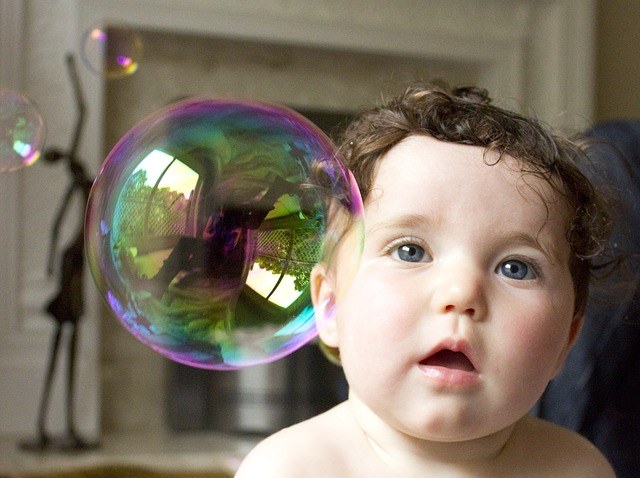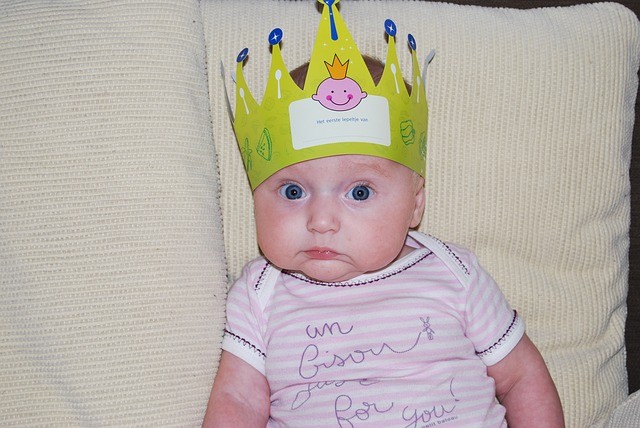Babies are typically known for sticking to mainly four things only: eating, sleeping, crying, and pooping. You wouldn’t hire a baby to do a job for you or become your life coach, but as it turns out, observing the way babies behave can actually help you get back in touch with your primal instincts so you can get more things done in today’s modern, chaotic world.
Productivity has a lot to do with simplified tasks and techniques that support maximum efficiency, and what better way to study the art of simplicity than by watching what a baby does? Here are 10 things to pay attention to next time you have to babysit your little niece or find yourself smiling and making faces at a baby in a stroller at the supermarket.
1. They get really cranky when they haven’t had enough sleep.
Babies sleep a lot. Up to 15 hours, in fact. And when babies don’t get their nap time in, they let the world know that they’re tired and unhappy about it by screaming their heads off and fussing over everything.
A lot of adults, on the other hand, often sacrifice sleep for work and other responsibilities. Without adequate sleep, perception and judgment are affected, resulting in lack of focus, poor decision-making, more errors, and an increased vulnerability to stress.
Science tells us that enough sleep is necessary for our brains and our bodies to function optimally. And even though eight hours has always been considered the magic number adults are supposed to strive for, it really comes down to the quality of sleep you get rather than a fixed number of hours.
2. They’re not afraid of messy situations… in fact, they love them!
You’d never meet a baby who was actually afraid of making a mess. Whether it involves getting chocolate cake all over their faces, leaving piles of toys on the floor in every room in the house, or somehow getting a hold of the magic markers and drawing on walls and furniture – babies just accept the fact that messiness happens, and that’s okay.
When we grow up, though, we learn to think more logically and start to follow societal norms. We quickly figure out that messiness is bad and intimidating and should always be avoided in the adult world.
It’s no wonder so many people end up downplaying or abandoning certain tasks or goals that could present them with challenge and get kind of messy. Something like a complicated client project or a disaster of an email inbox is enough to put any regular adult off.
But challenge, struggle, and messiness are essential parts of progress, growth, and achievement. If you believe that everything is always supposed to go smoothly and perfectly all the time, you’re living in a dream world. As soon as you recognize and accept that, you should see some positive changes in your own level of productivity.
3. They’re always learning new things.
It’s obvious that babies have zero experience when it comes to life skills. Between sleeping, eating, and pooping, they have to spend the rest of their time constantly learning everything they can about themselves, their surroundings, and the people that are in their lives.
There may come a time in our adult lives when we think we’ve got all the knowledge and experience we need to carry out a task or get something done. But assuming you know everything about something and saying you can do it better than anyone else is the ultimate closed-minded, stubborn way to limiting your own productivity potential.
Always stay open to learning. Things never stay the same, and there are so many other people with different skills and experience who are willing to teach and show you how you can use them yourself to open up new doors for improving the way you work and get things done.
4. They squirm and move around a lot.
When they’re not sleeping, babies can usually be seen wiggling around and putting objects in their mouths and even mimicking gestures they see adults doing. Babies who can crawl or walk are even more active than that, and it’s not uncommon for parents to feel completely wiped out after even just a few hours of chasing their kid around the house.
An active baby is a happy baby, and us adults sure could learn from that. Too many of us spend our lives moving from our beds, to our cars, to our desks, back to our cars, to the couch, and back to bed again. We’re always sitting and many of us don’t get nearly as much physical activity as we should.
Studies show that our mental performance is influenced by our physical movement throughout the day. Regular exercise (even something as simple as a 30-minute leisure walk) can contribute to all sorts of different areas of mental power — from sharper concentration and improved memory, to enhanced creativity and faster learning.
5. They’re not hopelessly addicted to technology like the rest of us.
Okay, so maybe there are a lot more babies becoming increasingly mesmerized by their parents’ iPads or smartphones these days, but at least they don’t carry them around with them wherever they go and they don’t constantly check them every five minutes of every day.
A baby isn’t going to stay satisfied with a screen in his face for very long, and neither should adults. Becoming a slave to your devices by staying on the email drip and checking Facebook multiple times in the span of an hour only contributes to distraction and higher stress levels.
You can be a happier, healthier, more productive person by limiting screen time and making sure you unplug completely every once in a while.
6. They’re natural explorers and problem solvers.
Babies are wired to learn through exploring everything they can get their little hands on. And when they’re faced with a problem, they set out on a journey to figure out a solution. A baby may reach out to touch the family pet’s face and fur to try and understand it better while another baby may figure out how to climb right out of his crib by himself after deciding he wants out.
To become a more productive person, you need problem solving skills. Identify what tasks may be unnecessary, time consuming, or distracting. Develop a system that you think will work, take some time to experiment with it, and then make changes or fine tune it until it works best for you.
7. They’re always living in the moment.
You don’t have to observe a baby’s behavior for long to understand that they’re really only interested in what’s happening in the present moment. They’re not worried about tomorrow’s diaper change or yesterday’s flavor of baby food – all they care about is what’s going on right now.
When it comes to getting things done, adults can place a hindrance on their own performance and efficiency by getting too preoccupied with worries about what already happened in the past or what might happen in the future. It’s easy to get carried away with focusing too much on previous criticism or anticipating how you’ll stack up to people’s expectations, so much so that it gets in the way of doing your best work.
Practice being more present so you can perform at your fullest potential. The past is behind you, and the future isn’t here yet, so why worry about it?
8. They’re not obsessed with pleasing everyone.
As adults, we all want to be liked. Babies, however, couldn’t care less about how the entire world perceives them. Of course they want to be loved by the people around them, but they don’t excessively worry about their appearances or their actions with regards to other people’s opinions of them.
A baby will gladly throw a tantrum in a public place or ignore the fact that her hair is a mess right before a professional photo shoot. But adults will do the exact opposite by letting their extreme desires to impress and win the approval of other people get in the way of what they’re truly capable of doing.
To improve your productivity, you have to find what works for you, regardless of what other people may think. Everyone is different, and if you think you have to sacrifice something you know is right for you in order to please other people, then you need to reevaluate what’s most important to you.
9. They ask (or cry) for help when they need it.
All babies need the help of their parents and caretakers to help them learn and grow. When they need help with something – a toy that fell out of reach, a full diaper that needs changing, or even a TV channel change to a favorite cartoon show – they’ll let you know they need your help by screaming, crying, shrieking, making silly noises, or gesturing to try to communicate what they want.
Adults are often much more reluctant to ask for help when they need it, though. A lot of people convince themselves that they need to do everything their own way and end up taking on more work than necessary, or they assume that they’d be a bother by asking someone else for a hand.
It’s time to get over your fear of asking for help and worrying that other people won’t get things done your way. More often than not, people are happy to help. And when you get help from the right people with the right skills and experience, you may find they actually do a better job than you ever could have done.
10. They don’t let trivial problems prevent them from doing what they do or being who they are.
As mentioned in the beginning of this this article, babies are simple creatures. Unlike their adult counterparts, they don’t get caught up with small details in every little thing they’re faced with. They’re too busy learning and trying to understand the bigger picture about whatever it is they’re doing.
Some people say that babies are just drunk adults. In a lot of ways, it’s kind of true. Babies are far from perfect, and adults have a hard time accepting that they themselves are never going to be perfect either.
Even when you’re having the most productive week or month or year ever, problems are bound to arise at some point. The key is to not sweat the small stuff, and learn to focus on the positive work you’re doing rather than all the tiny little things that may be preventing you from getting what you want to get done.
Set yourself free from the perfectionist mindset. More progress and achievement is lost by worrying about failure and imperfection than by committing to a plan and working through it with a positive and optimistic attitude.






















































